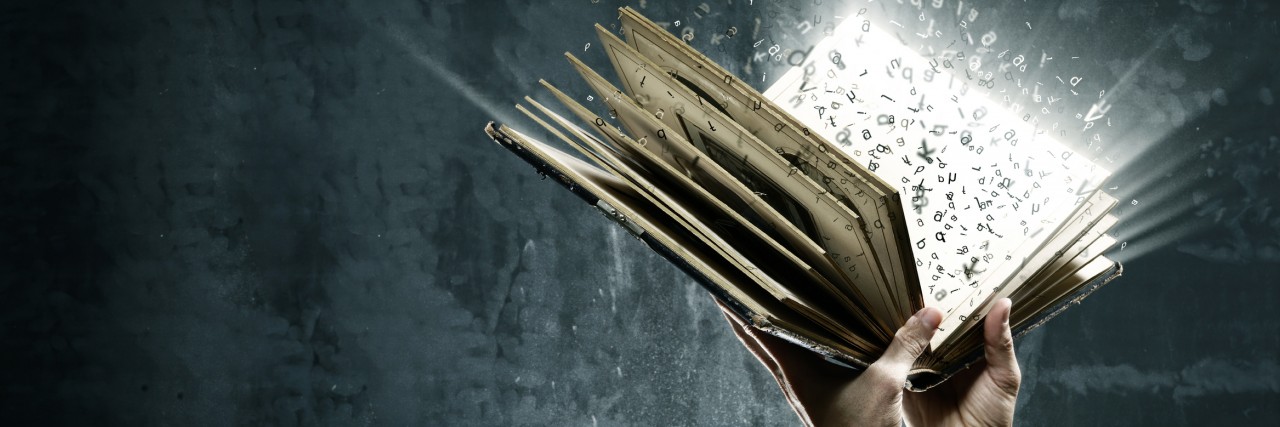For a highly intelligent woman, I have made some awful decisions. I treated myself with a complete lack of respect and love that almost led to my demise. There is no easy way to say what I’m going to say, so forgive my bluntness. I had anorexia for seven years. From ages 12 to 19, I starved my body to the point that I barely lived to tell you about it.
I spent the first 18 years of my life not in the closet regarding my sexuality but in the closet regarding my entire self. I took each part of me that wasn’t flawless and obliterated it until just a carcass remained. Then, I took that carcass and forced it into my idea of my best self. I embodied perfection. I was well-mannered and respectful. I was a straight A+ student. I was a rock in the tumultuous lives of my friends. I was a nationally-ranked athlete. I was striking to the eye.
The only thing I wasn’t, however, was a person. I was all but dead. I locked my body and my soul in a dungeon together and fed neither, so they ate away at each other until nothing of either remained. And no one noticed because, why would they? How could someone so high-performing harm herself from the inside out?
You see me, my accolades and my easy-going personality and sense of humor, and assume you know me. You assume I am the perfect person I present to the world, just like you assume of everyone else. And that makes you feel insecure. You know what I’m referring to — think about that person you stalk on Facebook and think, “God, why is their life so perfect and I can’t even get a text back?” You look at everyone as though they are their Facebook profiles.
Wake up!
I wish this disease upon no one, but I vacillate between resenting it with every fiber of my being and regarding it as a blessing. I have insights most 19-year old women do not, but I’ll shout my realizations from the rooftops if I think it’ll make a difference in even one person’s life. So, listen up:
As humans, we are not one page of a book nor are we one lone book — we are libraries. Our bodies are shelves upon shelves of the books that make us, us; the fiction and the nonfiction, the memoirs and the encyclopedias and textbooks and diaries. Some have dusty covers and that new-book smell, and others have well-worn covers and dog-eared pages. However, we all make the mistake of thinking of others as just one single page, whereas we are the only library in the world. So we hide our libraries deep inside and only show others that one piece we’re proud of, the one epic page with the perfectly polished sentences and appropriate metaphors. We keep the worn and the poorly written and the dark and the embarrassing ones for ourselves, bringing them out only at night to read by candlelight stealthily, as though we commit some mortal sin by even recognizing their existence.
This is absurd. Everyone is multi-faceted. We ostracize ourselves when we think we are the only multi-faceted person in a world of single-faceted people. We think, “I am the only one facing this challenge, and so I must hide that because there is something wrong with me.” Gather a room of one hundred people, and ask them if they’ve ever thought, “I am the only one struggling.” Nearly everyone will raise their hands. You will be shocked. Everyone will be shocked. If everyone feels alone, is anyone really alone?
You are not alone.
I know I am not alone. After 19 years of reading just from my perfect novel with the pristine cover, I have read aloud (to select people, that is) my dustiest and darkest and saddest volumes, and they have read me theirs. I never believed it was possible for me to connect with others, but I was wrong. Authenticity is not an attribute of a relationship — it glues together relationships. We believe flaws repel us from others, but they really draw us together. Everyone has their imperfections and insecurities, and if you think you don’t, do us all a favor and call a therapist because you’re the most messed-up of us all.
You take the first step to healing when you recognize that struggle is an inevitable part of life. So if you have learned anything from my ranting, let it be this: struggling does not mean there’s something wrong with you. Struggling means there’s something right with you — you’re a person. So, embrace it. Welcome to this planet, where everyone struggles every day because that’s what makes us people.
If you or someone you know is struggling with an eating disorder, you can call the National Eating Disorders Association Helpline at 1-800-931-2237.
This story was originally published on Project Heal.
We want to hear your story. Become a Mighty contributor here.
Thinkstock photo by efks

